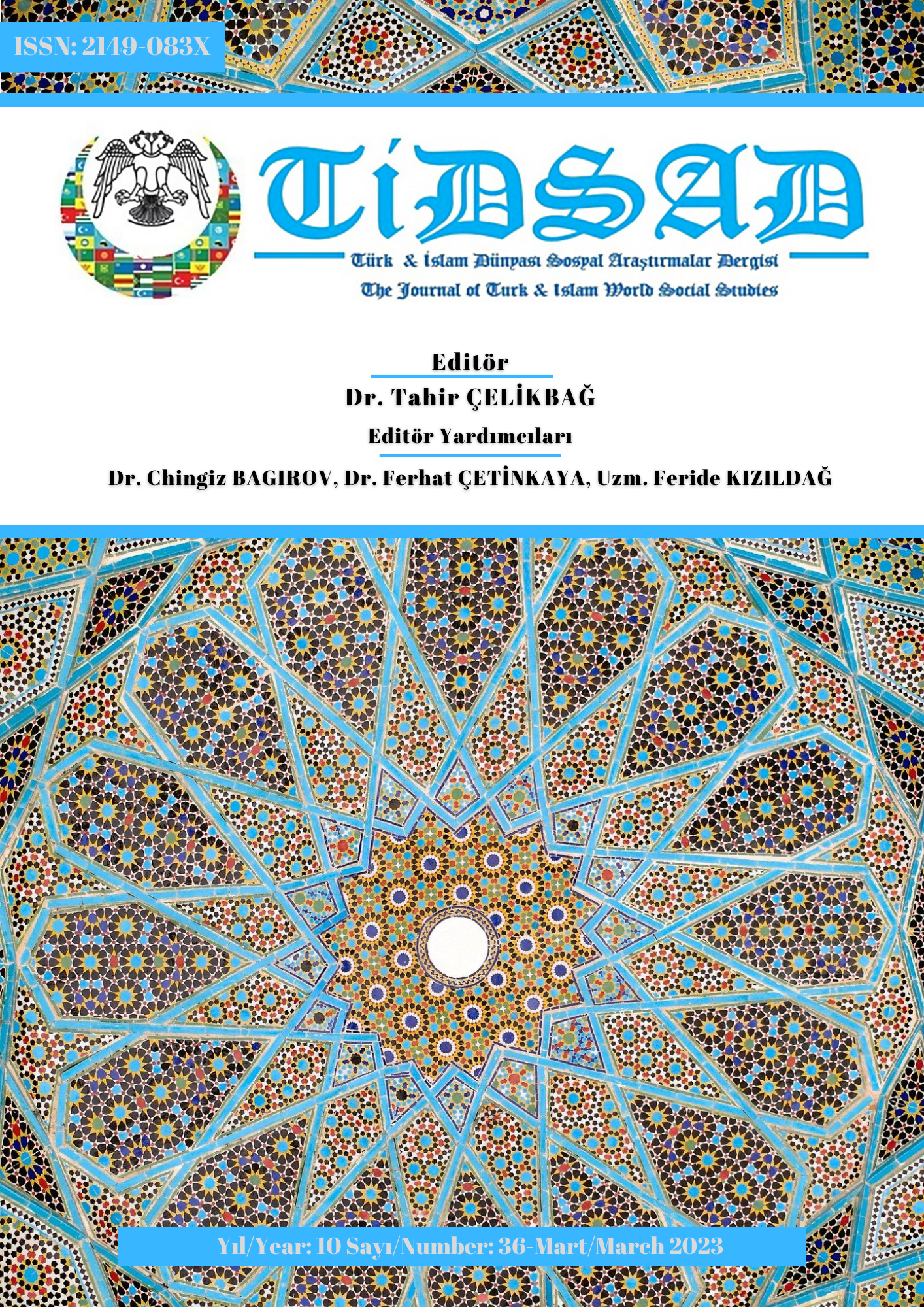İslam Devleti’nin Kurumsallaşmasında Halife Ömer'in Kamu Yönetimi Alanında Gerçekleştirdiği Yenilikler
Author :
Abstract
Hz. Peygamber’in vefatından sonra halife olan Hz. Ebû Bekir, yaklaşık iki buçuk yıllık hilafeti döneminde dâhili ve harici problemlerle meşgul olmuş, dinden dönen kabilelerle mücadele etmiş, Irak ve Suriye cephesine ordular göndermiştir. Onun bu süreçteki en büyük destekçisi ise Hz. Ömer olmuştur. Hz. Ebû Bekir’in vefatından sonra halife olan Hz. Ömer, Bizans ve Sâsânîlerle olan mücadeleye devam etmiş, fetih hareketlerini sistemli hale getirmek için yeni kararlara imza atmıştır. Askerlik hizmetinin yeniden düzenlenmesi, askerlerin ailelerine maddi destek sağlanması ve ordugâh şehirlerinin kurulması ile başlayan bu süreç diğer alanlarda da devam etmiştir. Hz. Ömer’in sosyal hayatı ilgilendiren ve halkın refahını arttıran birtakım kararlar alması, ekonomi, devlet idaresi, dinî ve hukuki alanlara yönelik yeni uygulamalara başvurması onun hilafeti dönemindeki başarısının altında yatan en önemli etkenlerdendir. Bu çalışmada temel kaynaklardan hareketle Hz. Ömer’in sistem kurucu olarak addedilmesine vesile olan uygulamaları beş bölümde incelenecek, bu uygulamaların neden ve sonuçlarına değinilecek ve Hz. Ömer’in başarısındaki rolü araştırılacaktır.
Keywords
Abstract
Abu Bakr, who became the caliph after the death of the Prophet Muhammad, dealt with internal and external problems during his two-and-a-half-year caliphate, fought against tribes who had returned from religion, and sent armies to the Iraqi and Syrian fronts. His biggest supporter in this process was Caliph Omar. Omar, who became the caliph after the death of Caliph Abu Bakr, continued the struggle with Byzantium and Sassanids, and signed new decisions to systematize the conquest movements. This process, which started with the reorganization of the military service, providing financial support to the families of the soldiers and the establishment of camp cities, continued in other areas as well. The most important factors underlying the success of Caliph Omar during his caliphate period are that he made some decisions that concern social life and increase the welfare of the people, and that he applied to new practices in the economy, state administration, religious and legal fields. In this study, based on basic sources, the practices that led to Caliph Omar being considered as a system builder will be examined in five sections, the causes and consequences of these practices will be mentioned, and the role of Caliph Omar in his success will be investigated.
